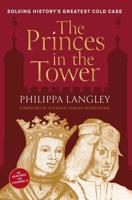Publisher's Synopsis
A renowned scholar investigates the human crisis' that Albert Camus confronted in his world and in ours, producing a brilliant study of Camus's life and influence for those readers who, in Camuss words, ';cannot live without dialogue and friendship.'As Franceand all of the worldwas emerging from the depths of World War II, Camus summed up what he saw as the human crisis': We gasp for air among people who believe they are absolutely right, whether it be in their machines or their ideas. And for all who cannot live without dialogue and the friendship of other human beings, this silence is the end of the world. In the years after he wrote these words, until his death fourteen years later, Camus labored to address this crisis, arguing for dialogue, understanding, clarity, and truth. When he sailed to New York, in March 1946for his first and only visit to the United Stateshe found an ebullient nation celebrating victory. Camus warned against the common postwar complacency that took false comfort in the fact that Hitler was dead and the Third Reich had fallen. Yes, the serpentine beast was dead, but ';we know perfectly well,' he argued, ';that the venom is not gone, that each of us carries it in our own hearts.' All around him in the postwar world, Camus saw disheartening evidence of a global community revealing a heightened indifference to a number of societal ills. It is the same indifference to human suffering that we see all around, and within ourselves, today. Camus's voice speaks like few others to the heart of an affliction that infects our country and our world, a world divided against itself. His generation called him ';the conscience of Europe.' That same voice speaks to us and our world today with a moral integrity and eloquence so sorely lacking in the public arena. Few authors, sixty years after their deaths, have more avid readers, across more continents, than Albert Camus. Camus has never been a trend, a fad, or just a good read. He was always and still is a companion, a guide, a challenge, and a light in darkened times. This keenly insightful story of an intellectual is an ideal volume for those readers who are first discovering Camus, as well as a penetrating exploration of the author for all those who imagine they have already plumbed Camus' depthsa supremely timely book on an author whose time has come once again.








